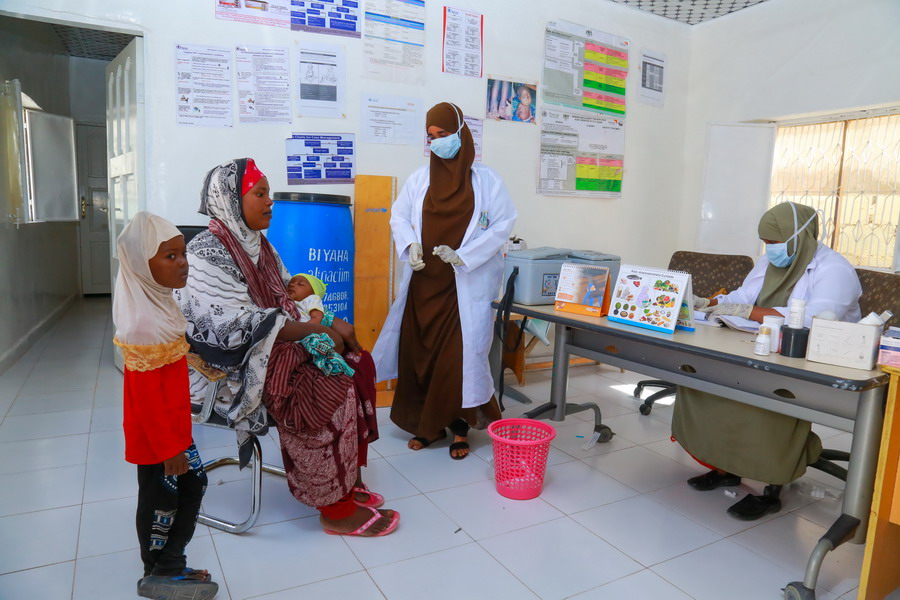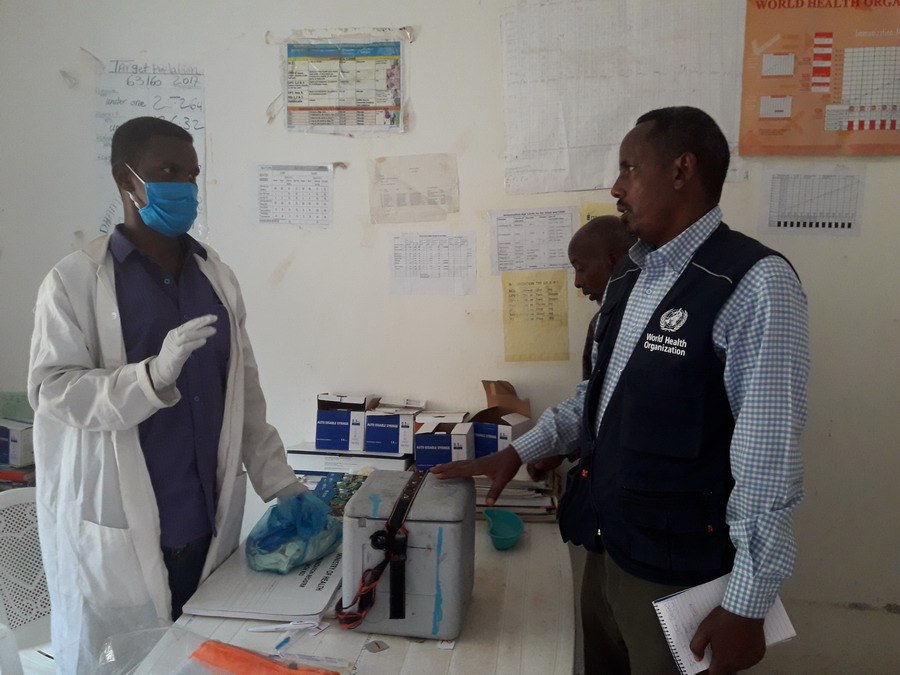
17 June 2020 – The current pandemic caused by COVID-19 has strained the fragile health system in Somalia as the number of cases increases. Despite some early signs that the virus spread may be slowing down in its capital city Mogadishu and in major urban centres, cases continue to grow at subnational level as transmission spreads.
The lockdown and the social distancing measures have also raised fear among health care workers providing other routine essential health care, such as immunization for children, care of pregnant and lactating women, as well as care for malnourished children. The number of people visiting health centres for routine care has significantly dropped recently as a result of lack of public transport and other means to accessfacilities. Visiting health centres without personal protective measures, such as masks and maintaining physical distancing, puts individuals at rsik. Owing to the lack of basic and essential protective equipment, such as masks and gloves, for health care workers some vaccinators and other health care providers are not reporting for work.
In a fragile and weak health system like in Somalia, the immediate and long-term effects to disruption of health services can be catastrophic. Somalia has made good progress in reducing under-5 mortality and maternal mortality. Thanks to the work of WHO and many other partners such as the UNICEF and UNFPA, the maternal mortality ratio was reduced by 31% overall in less than 2 decades from 1210 deaths per 100 000 live births in 2000 to 829 deaths per 100 000 live births in 2017. The under-5 mortality rate was also reduced by 27% overall in less than 2 decades from 171.1 deaths per 1000 live births in 2000 to 124.4 deaths per 1000 live births in 2017. Despite the progresses made, COVID-19 is now overshadowing and potentially reversing these health gains as the demand for routine health care is declining for fear of being infected while seeking or providing health care services.
A modelling study published recently in a peer-reviewed medical journal has shown that the disruption of routine health care services for a prolonged period may have a devastating impact, including:
- a 20% reduction in life-saving vaccination coverage
- a 4% reduction in facility-based health care delivery
- a 13% increase in childhood mortality.
A similar situation was also observed during the 2014–2015 outbreak of Ebola virus disease in Africa where analyses suggested that the increased number of deaths caused by measles, malaria, HIV/AIDS and tuberculosis attributable to health system failures exceeded deaths that were directly attributable to Ebola virus disease.
Considering the urgency of scaling up essential health services and to protect health gains, the WHO country office, in partnership with UNICEF, UNFPA and other partners has distributed face masks and gloves to all vaccination centres in the country for mass use by vaccinators and health care providers. This has allowed immunization services to resume normally. Using physical distancing and other public health measures, WHO staff have also increased monitoring and supervisory visits to these vaccination, maternal and child health care centres to ensure that routine health services resume operations, while at the same time reducing the risk of exposure of COVID-19 to both health care seekers and providers.

WHO continues to scale up operations to contain the transmission of COVID-19 and end the pandemic and work with partners to ensure that essential health care services resume as soon as possible. WHO’s work for COVID-19 in Somalia which also includes support for essential health care remains underfunded. Only 20% of WHO’s emergency response appeal for COVID-I9 response has so far been funded.
For more information:
Kyle Defreitas
External Relations & Resource Mobilization Officer
World Health Organization, Somalia
Mob: +254-782-501-324
Email:
Fouzia Bhatti
Communication Officer
WHO Country Office Mogadishu - Somalia
Tel: +252619235880
Email:








